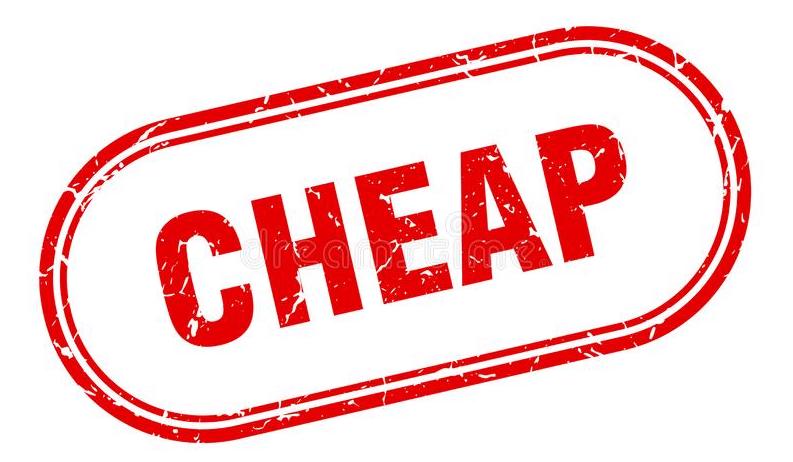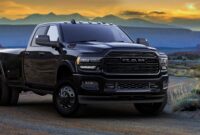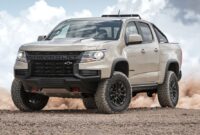Cheap Trucks For Sale Under $500: The Ultimate Guide to Ultra-Budget Utility sale.truckstrend.com
In an era where vehicle prices seem to constantly climb, the idea of finding a functional truck for under $500 might sound like a pipe dream, or perhaps a punchline. However, for a specific niche of buyers – those with mechanical aptitude, a clear purpose, and realistic expectations – the realm of "cheap trucks for sale under $500" isn’t entirely mythical. It’s a challenging, often gritty, but potentially rewarding frontier for budget-conscious individuals seeking a project, a parts donor, or a bare-bones utility vehicle for private property use.
This comprehensive guide will delve deep into the reality of these ultra-affordable trucks, outlining what you can realistically expect, where to find them, what pitfalls to avoid, and how to maximize your chances of a successful, albeit unconventional, purchase. Forget shiny paint and air conditioning; we’re talking about the raw, unfiltered world of vehicles at the absolute bottom of the market.
Cheap Trucks For Sale Under $500: The Ultimate Guide to Ultra-Budget Utility
The Stark Reality of the Sub-$500 Truck Market
Let’s be unequivocally clear: A truck priced under $500 is not a daily driver. It is not something you’ll register, insure, and comfortably commute in without significant, often prohibitive, additional investment. These vehicles are almost exclusively:
- Non-Running Projects: The most common scenario. The engine might be seized, transmission blown, or it simply hasn’t run in years.
- Parts Donors: Vehicles bought solely for their components to repair another, similar truck.
- Off-Road/Farm Use Only: Trucks intended for use on private land where registration and roadworthiness are not requirements.
- Mechanic’s Specials: Requiring extensive repairs that only a skilled individual with time and tools can undertake.
- Rust Buckets: Severe corrosion is almost guaranteed, often compromising structural integrity.
- Salvage or Title Issues: Many will come without a clear title, making legal registration impossible in most states.

The incredibly low price reflects significant underlying issues. Owners are typically trying to get rid of a vehicle that’s become an immovable obstacle, a liability, or simply not worth their time and money to fix. Understanding this fundamental truth is the first and most crucial step in navigating this market.
Who is a Sub-$500 Truck For?
Given the inherent challenges, who exactly benefits from purchasing a truck at this price point?
- The Mechanically Inclined DIYer: If you possess a strong understanding of automotive mechanics, have a well-equipped garage, and enjoy the challenge of bringing a dead vehicle back to life, a sub-$500 truck can be an incredibly rewarding (and educational) project.
- Farmers, Ranchers, and Landowners: For moving feed, tools, brush, or other materials around a private property, a non-roadworthy but functional truck can be an invaluable asset, saving wear and tear on more expensive vehicles.
- Aspiring Mechanics or Hobbyists: This is an excellent opportunity to learn about vehicle systems, practice repairs, and gain hands-on experience without the pressure of ruining a valuable asset.
- Parts Harvesters: If you own a specific older truck model and need components (engine, transmission, axles, interior parts), buying a complete, cheap truck for parts can be more cost-effective than buying individual components.
- Scrap Metal Enthusiasts: For those with the means to dismantle and transport, a very cheap truck can sometimes yield a profit from scrap metal, though this requires significant effort.
If you’re looking for cheap transportation, or a reliable workhorse, stop reading now. This market is not for you.
Where to Unearth These Ultra-Budget Bargains
Finding a truck for under $500 requires patience, persistence, and knowing where to look beyond conventional car dealerships.
- Online Classifieds (Your Best Bet):
- Craigslist: Search terms like "parts truck," "non-running truck," "mechanic special," "free truck" (sometimes people just want them gone). Be prepared to filter through a lot of junk.
- Facebook Marketplace: Similar to Craigslist, but often with better photos and direct messaging. Join local "for sale" groups.
- eBay Motors (Local Pickup Only): Less common for this price point, but sometimes extremely distressed vehicles are listed.
- Local Word-of-Mouth: Tell friends, family, and local mechanics you’re looking for a cheap project truck. Old trucks often sit in backyards or forgotten barns.
- Auto Salvage Yards/Junkyards: While most vehicles are processed for parts, some yards might sell complete "project" vehicles that are too good to scrap but not good enough for their primary sales. Prices can vary wildly.
- Farm & Estate Sales: These are goldmines for older, utilitarian vehicles that have lived a hard life on private property.
- Rural Areas: Drive through less populated areas. You might spot an old truck sitting in a field with a "For Sale" sign.
- Impound/Government Auctions (Rarely Under $500): While most impound or government surplus auctions will have minimum bids above $500, it’s not entirely impossible to find a truly derelict vehicle that slips through the cracks. Be aware of stringent rules and "as-is" sales.
What to Look For (and Realistically Expect) When Inspecting
When you find a potential candidate, your inspection process will be very different from buying a roadworthy vehicle. You’re assessing potential and salvageability, not immediate functionality.
- Frame Integrity (CRITICAL): This is the absolute non-negotiable. Major rust on the frame, especially near suspension mounting points or the cab, is usually a deal-breaker. Minor surface rust is expected, but look for holes, flaking, or severe deterioration.
- Title Status: Ask upfront. If there’s no title, or a salvage/junk title, understand that registering it for road use will be extremely difficult, if not impossible. A clean title, even for a non-runner, adds significant value and future flexibility.
- Engine Completeness: Is the engine intact? Are major components (carburetor/fuel injection, alternator, starter) present? A missing engine or a disassembled one indicates a far more complex project.
- Transmission Type: Manual transmissions are generally simpler and more robust, potentially easier to salvage. Automatics can be more complex to diagnose and repair.
- Rust (Body Panels): While ugly, body panel rust is often cosmetic. However, severe rust in critical areas like cab mounts, bed supports, or floorboards can be a structural issue.
- Interior Condition: Expect extreme wear, tears, missing components, and potentially rodent infestations. This is usually the least of your worries unless you plan a full restoration.
- Tires: Assume they’re flat, dry-rotted, or missing. Factor in the cost of new tires or a set of used rollers just to move it.
- Missing Parts: The cheaper the truck, the more likely parts will be missing. This could be anything from a headlight to a driveshaft.
- Fluids: Check oil, coolant, and brake fluid levels (if possible). Muddy oil or coolant indicates severe internal issues.
- Seller Honesty: Ask direct questions: "Why are you selling it?" "What exactly is wrong with it?" "How long has it been sitting?" "Does it roll?" Their answers, or lack thereof, will tell you a lot.
Tools to Bring: Flashlight, basic mechanics tools (wrenches, screwdrivers), jumper cables (just in case), a multi-meter, and a friend to help assess.
The "How-To": Acquiring and Transporting Your Sub-$500 Find
- Negotiation is Key: The seller is likely desperate to get rid of it. Offer less than the asking price, especially if you find more issues during inspection. Cash is king for these types of transactions.
- Paperwork: Even for a parts truck, get a basic bill of sale with the VIN, purchase price, date, and seller/buyer information. If there’s a title, ensure it’s properly signed over. Understand your local DMV’s rules regarding abandoned vehicles or vehicles without titles.
- Transportation Costs (Crucial!): This is where most people underestimate. A non-running truck will need to be towed.
- Professional Towing: Can easily cost $100-$300 or more, potentially exceeding the cost of the truck itself. Get quotes beforehand.
- Renting a Flatbed Trailer: If you have a capable tow vehicle, renting a flatbed from U-Haul or a similar service is an option, but ensure you have proper tie-downs and know how to load/unload a non-running vehicle safely.
- Car Dolly: Only if the truck is rear-wheel drive and the rear wheels are free. Not suitable for many applications.
- Be Prepared: Bring a come-along, chains, or a winch if you need to drag it onto a trailer.
Potential Challenges and Their Realistic Solutions
- No
- Challenge: Cannot be legally registered for road use.
- Solution: Use strictly on private property (farm, ranch), or use it solely as a parts donor. Some states have "bonded title" processes, but these are complex and expensive, negating the "cheap" aspect.
- Major Mechanical Issues (Engine/Transmission):
- Challenge: Requires significant expertise, tools, and potentially costly parts (even used ones).
- Solution: DIY repair (if skilled), swap in a different used engine/transmission (requires significant work), or use as a parts donor.
- Severe Rust (Frame/Structural):
- Challenge: Compromises safety and structural integrity. Very difficult and expensive to repair properly.
- Solution: Unless you’re a skilled welder with access to fabrication tools, this usually means the truck is only good for parts or strictly off-road, slow-speed private property use where structural failure is less catastrophic.
- Electrical Gremlins:
- Challenge: Can be incredibly frustrating and time-consuming to diagnose and repair.
- Solution: Patience, wiring diagrams, multi-meter, and systematic troubleshooting. Sometimes, a full re-wire is easier.
- Hidden Costs:
- Challenge: Towing, fluids, battery, tires, and unexpected repair parts quickly add up.
- Solution: Budget at least double the purchase price for initial setup and basic repairs, even for a non-running vehicle. Realistically, getting a non-runner to a usable state can easily cost thousands more.
Types of Trucks Most Likely Found Under $500
You won’t find anything exotic or sought-after. Focus on models that were produced in high numbers, are notoriously robust, and are old enough to have depreciated into oblivion.
- Compact Pickups (1980s-1990s): Ford Ranger, Chevy S10/GMC Sonoma, Nissan Hardbody, Toyota Pickup (pre-Tacoma), Mazda B-Series. These were often simple, smaller, and had lower initial prices, making them more likely to end up in this price bracket.
- Full-Size Pickups (1970s-1990s): Older Ford F-Series (F-150, F-250), Chevy C/K Series (C10, K10), Dodge Ram. These are often found in extremely derelict condition, but their robust nature means parts might still be salvageable.
Price Table: What $500 (or Less) Buys You
This table provides a realistic outlook on what condition you can expect based on the price point, rather than specific models, which vary wildly.
| Price Range ($) | Typical Condition | Common Use Cases | Key Considerations |
|---|---|---|---|
| $100 – $250 | Non-running, severe rust, missing major components, likely no title. Engine seized or completely blown. | Parts donor, scrap metal, yard art, extreme learning project. | Requires complete overhaul. May not be worth the effort beyond parts. |
| $250 – $400 | Non-running, heavy rust, may be mostly complete but with major mechanical issues (engine, trans, electrical). Possible title issues. | Parts donor, dedicated farm/off-road utility (if repaired), long-term restoration. | High likelihood of needing engine/trans rebuild, major bodywork. Towing essential. |
| $400 – $500 | Non-running or barely running, significant mechanical issues, heavy rust, safety hazards. Might have a clear title but requires extensive work. | Farm/private property utility, dedicated off-road vehicle (after repairs), serious mechanic’s project. | Still a huge undertaking. Towing costs often exceed purchase price. |
Frequently Asked Questions (FAQ)
Q1: Can I really get a road-worthy truck for under $500?
A1: No, absolutely not. Any truck for sale under $500 will require significant additional investment in parts, labor, and potentially title/registration fees to ever become road-worthy and legal. Expect to spend thousands more, not hundreds, to achieve this.
Q2: What’s the biggest challenge when buying a sub-$500 truck?
A2: The biggest challenges are usually title issues (many won’t have a clear title), severe rust (especially structural), and major mechanical failures (engine/transmission). Factoring in towing costs is also a significant hurdle.
Q3: Should I buy a truck without a title?
A3: Only if you intend to use it strictly for parts or on private property (like a farm or ranch) where registration isn’t required. Do not buy a truck without a title with the expectation of ever driving it on public roads.
Q4: How much more will I likely spend to get a $500 truck running and driving?
A4: This is highly variable, but realistically, you’re looking at hundreds to thousands of dollars in parts alone, plus your time. A battery ($100+), tires ($400+), brake components ($200+), and basic fluids ($50+) already push you over $750, and that’s before addressing major engine, transmission, or rust issues.
Q5: What essential tools do I need to work on one of these cheap trucks?
A5: A good basic mechanic’s tool set (sockets, wrenches, screwdrivers), a floor jack, jack stands, a flashlight, a multi-meter, penetrating oil, a good parts manual, and possibly a welder if you’re tackling rust.
Q6: Is it worth the effort to buy and fix a sub-$500 truck?
A6: It depends entirely on your purpose, skills, and budget. If you enjoy mechanical work, need a dedicated farm vehicle, or want a learning project, it can be incredibly rewarding. If you need reliable transportation, it’s almost never worth the effort or cost.
Conclusion: A Niche for the Daring and Dedicated
The quest for cheap trucks for sale under $500 is not for the faint of heart or the unprepared. It’s a journey into the deepest end of the automotive market, where rust, broken parts, and missing titles are the norm. However, for the right individual – the backyard mechanic, the resourceful farmer, or the determined hobbyist – these ultra-budget vehicles represent a unique opportunity.
They offer a chance to acquire a utilitarian machine at rock-bottom prices, hone mechanical skills, and derive immense satisfaction from resurrecting something others have given up on. Just remember to approach this niche with realistic expectations, a comprehensive plan, and a healthy appreciation for the significant effort and potential additional costs that lie beyond the initial bargain price. Your $500 truck isn’t just a purchase; it’s an investment in a project, a learning experience, and ultimately, a testament to what can be achieved with grit and determination.



